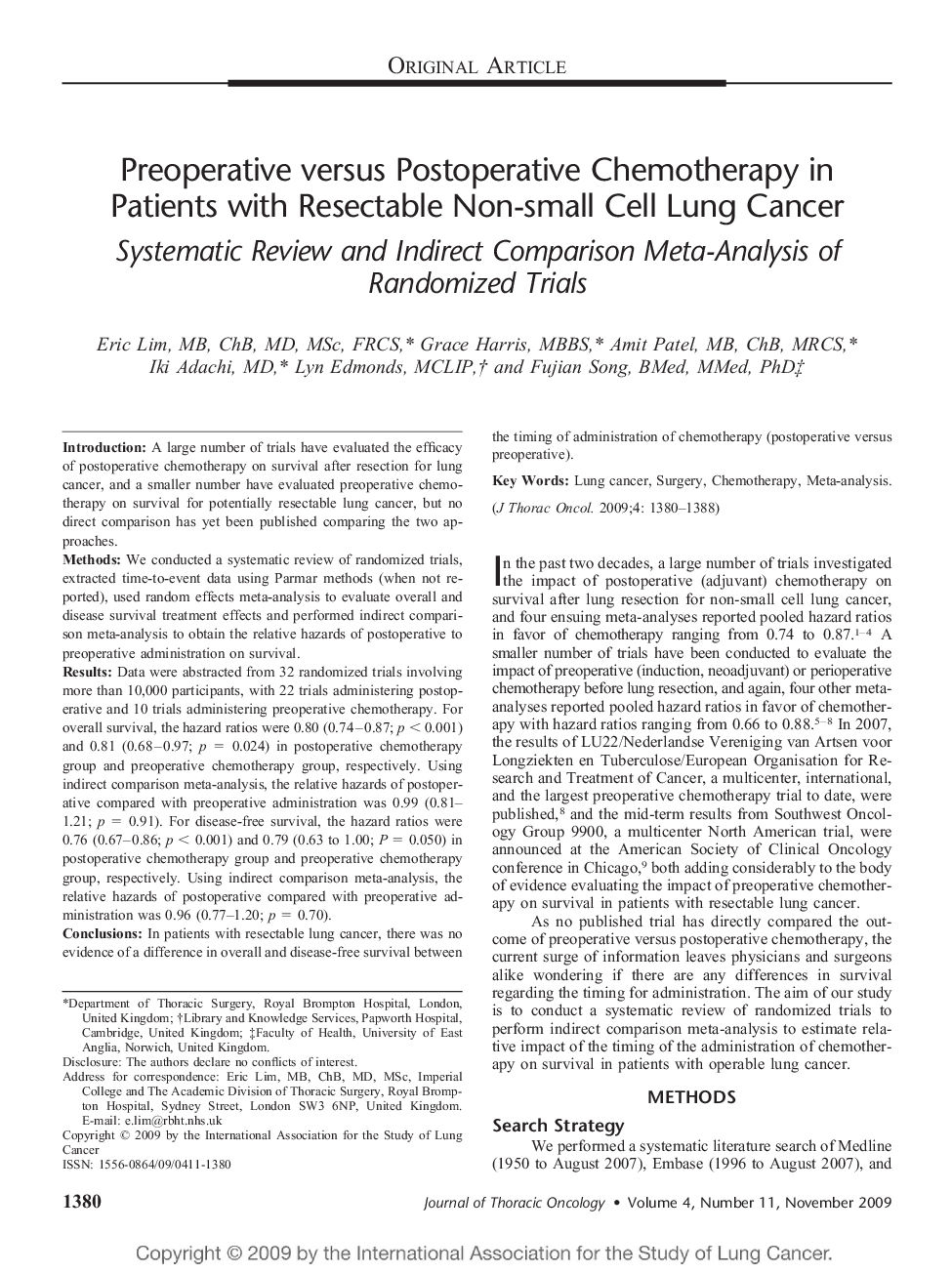| Article ID | Journal | Published Year | Pages | File Type |
|---|---|---|---|---|
| 3990637 | Journal of Thoracic Oncology | 2009 | 9 Pages |
IntroductionA large number of trials have evaluated the efficacy of postoperative chemotherapy on survival after resection for lung cancer, and a smaller number have evaluated preoperative chemotherapy on survival for potentially resectable lung cancer, but no direct comparison has yet been published comparing the two approaches.MethodsWe conducted a systematic review of randomized trials, extracted time-to-event data using Parmar methods (when not reported), used random effects meta-analysis to evaluate overall and disease survival treatment effects and performed indirect comparison meta-analysis to obtain the relative hazards of postoperative to preoperative administration on survival.ResultsData were abstracted from 32 randomized trials involving more than 10,000 participants, with 22 trials administering postoperative and 10 trials administering preoperative chemotherapy. For overall survival, the hazard ratios were 0.80 (0.74–0.87; p < 0.001) and 0.81 (0.68–0.97; p = 0.024) in postoperative chemotherapy group and preoperative chemotherapy group, respectively. Using indirect comparison meta-analysis, the relative hazards of postoperative compared with preoperative administration was 0.99 (0.81–1.21; p = 0.91). For disease-free survival, the hazard ratios were 0.76 (0.67–0.86; p < 0.001) and 0.79 (0.63 to 1.00; P = 0.050) in postoperative chemotherapy group and preoperative chemotherapy group, respectively. Using indirect comparison meta-analysis, the relative hazards of postoperative compared with preoperative administration was 0.96 (0.77–1.20; p = 0.70).ConclusionsIn patients with resectable lung cancer, there was no evidence of a difference in overall and disease-free survival between the timing of administration of chemotherapy (postoperative versus preoperative).
